
29 minute read
HEALING OURSELVES & OUR COMMUNITIES
Interview with Rachel Grant & Ron Capocelli
LISTEN TO AN INTERVIEW WITH RON CAPOCELLI, FROM WEB TALK RADIO.NET.
Or read translation below.
I’m Ron Capocelli, Thank you for joining me today on Getting Relationships Right. On Web, Talk Radio.Net, today, we’re going to have a conversation about a very important topic, sexual abuse. Today’s show, The Path to Healing From Sexual Abuse, will provide people, both women and men who have been sexually abused, with hope and a pathway to fully reclaim their lives.
The show is also intended to raise awareness regarding just how pervasive sexual abuse is, so that we can stand together and reduce its occurrence. I have some statistics for your consideration.
One in three women and one in five men have been sexually abused. Let me say that again, one in three women and one in five men have been sexually abused.
Unfortunately, these statistics do not tell the whole story, as sexual abuse is very underreported. It is therefore very likely that someone in your immediate circle of family, friends, colleagues, perhaps even someone you see every day in your daily life has suffered some form of sexual abuse.
Please take a moment to be fully present with these emotionally challenging facts. I realize that this is a difficult topic, but please stay tuned anyway, because we need your support.
I’d like you to take away two things from this podcast.
• Firstly, is you don’t have to continue to hold on to fear, shame and self-doubt. There is help for you. Reach out and get the help you need and deserve.
• Secondly, I encourage you to stand with me, to do your part to prevent sexual abuse within your family, circle of friends and community. I’m honored and delighted to introduce Rachel Grant.
Rachel is the owner and founder of Rachel Grant Coaching and as a trauma recovery coach, she is also the author of Beyond Surviving, the final stage in recovery from sexual abuse. With her support, adult survivors of sexual abuse break free from the past and return to their genuine self. Rachel provides a compassionate and challenging approach for her clients, while using coaching as opposed to therapeutic models.
Rachel, thank you so much for joining me today on getting relationships right.
Rachel
Hi, Ron, yeah, thank you so much for having me today.
Ron
So, Rachel, we’re just going to just dive into this pond, swim around and get all mucky. All right, sounds good. So, tell me a little bit about your own personal experience with sexual abuse.
Rachel
Well, when I was 10 years old, my grandfather was living with us. I grew up in a small town in Oklahoma, and it was my mother and father and I and my grandfather came to live with us. He was a little bit elderly, and I would often kind of take care of him around the house, and he was somewhat of a companion. One day we were sitting together, and he began touching me, and I really wasn’t sure (I was 10 years old), didn’t really know kind of what was going on, but I kind of fled in that moment and ran away. But was certainly distraught and scared and upset and didn’t have the capacity to talk about it. Didn’t know what to even say had happened. And this kind of continued over the course of many months, and to varying degrees of severity.
So at one point, you know, my mother actually witnessed what was happening, and as soon as she saw what was going on, she had him removed from the home and took him, you know, moved him out, moved him in with an aunt, and kind of at that point where I started, you know, my journey of trying to sort it all out and come to understand what had happened.
Ron
So how did you sort it all out? As you said, and before you answer that, I just want to acknowledge that the courage it takes to do that on the air. Just share what you shared. Thank you so much for doing that. I know you bring every ounce of that courage and compassion to the clients you serve, but so let’s, digress for just a second. And how was that untangling all that?
Rachel
A long process. It was a long, painful process, and my teen years were very confusing. I spent a lot of time just feeling out of touch with myself and other people. You know,
I remember there was kind of this moment where I felt like all of my friends continued on this one path, and I separated off and was over in this very different journey.
And so things that used to seem very simple and fun now had a very different tone to them. I remember getting upset with friends that they didn’t take things seriously enough, or didn’t understand that there are really bad things that happen in this world. And I grew up very fast in that moment, and my teen years were certainly spent chasing the feeling of wanting to be included, wanting to belong, wanting to feel seen and heard and understood, and making many wrong choices about how to go about doing that. By the time I reached my 20s, it really was becoming very clear to me that the effects of the abuse, they weren’t going to—it wasn’t gonna go away. I couldn’t just keep putting it in the corner and hoping that it would just, you know, disappear and stop affecting me. That I needed to talk with somebody. I needed to find a way out of this. And so I did start, you know, doing some therapy and talking with people, reading some books and starting to try to understand what the impact has been on me. But my frustration started to grow in that journey, as more and more often I would reach a certain insight, I would come to understand why I did things the way that I did, or why I had certain beliefs or responded to certain situations in the same way, over and over again. But each time I sought the support around you know, what do I do about that? How do I actually begin to step away from those thoughts, to step away from those behaviors? I just never got a satisfactory answer.

Ron
I’m just gonna acknowledge you. You bring up a really important point and thats just acknowledging that some things happened. I mean, that’s a very huge step. I want people to get that just acknowledging that you have been sexually abused, that this very difficult and very personal thing has happened, that’s a huge step, and then the next step is to begin to untangle it. And it requires patience, which you demonstrated—persistence, that you’re going to get it done. And it requires a pretty strong degree of continuous support for a period of time. Would you agree with that?
Rachel
Well, I think that what I discovered is there are these various stages of recovery that we go through . The way that I’ve come to think about it is, you know, this survivor stage —we’ve made the transition of talking about, you know, people being survivors of sexual abuse, survivors of abuse, as opposed to being victims. And that’s a very important shift in language and in framing the problem and thinking about yourself right, as somebody who is capable and able to make sense. But what I fear is that people get stuck at their survivor stage, and they spend way too long there. It’s an important part of the journey, making sense of it all, coming to be able to acknowledge and accept that this is part of your story.
Ron
So Rachel, how can you tell if you’re stuck in that stage, right? What are some of the stories?
Rachel
Well, I think that one of the biggest signs is that you are staying in repetitive patterns of a survivor:
• That you understand, Oh, I have a hard time trusting people, but you aren’t actually moving any closer to being able to trust.
• That you’re constantly trying to manage
• That your sense is that I keep going around the same amount over and over and over again. I understand why I’m doing it, but I don’t understand how to stop it
And if that’s your experience, then you’re very likely in that survivor place where you’ve gotten the insight and the understanding, but you haven’t developed the skills and tools yet step out of that into what I call the final stage, which is that beyond surviving stage.
Ron
So, I’m assuming that has a lot to do with negative self-talk, perhaps even some negative body image stuff. Would you like to talk a little bit about, how you deal with the cognitive part of things, what people tell themselves and their thoughts and feelings, and perhaps some examples of some things you told yourself in your thoughts and feelings, that kept you stuck.
Rachel
Yeah, so, for me, when I started recognizing this as a problem, as “I’m stuck and how do I get out of it,” that’s when I really set off to figure that out. I wanted to answer this question of, well, what do I do about it?
And so, I started studying things like neuroscience, cognitive behavioral therapy. I started looking at what really made a difference for me in my day-to-day life, and I did my degree and all those things, and started pulling together all these lessons learned. And really what I’ve discovered is that, you know, when we have an experience, the mind is automatically “Why.” It’s automatically set up to determine why such and such experience has occurred to us. We want to explain the things that are happening around us and to us, and so we can use a victim model to do that as people first do, we can also, well, I’ve survived this.
Ron
That’s another way to kind of frame it. But you’re taking people beyond that. You’re taking people to where they’re actually comfortable in intimate relationships.
Rachel
That’s right. And it begins by understanding how the brain is wired due to trauma . And so, for instance, myself, one of a lot of my false messages, a lot of the beliefs that I walked away with because of the abuse were things like:
• I’m not valuable, people will always leave.
• People are always going to be out to get me, to manipulate me, to use me for their own purposes.
And so all of those beliefs are like a wiring in your kind of film, like your belief highways in your brain. And for a very long time it was like a six lane highway. So all of those beliefs had lots of traffic, lots of action, and there was no exit ramp. I could not get off over and over and over again.
My experiences, I’m coming into a new relationship, and I start out really positive, thinking, “Okay, this time you know I’m going to be I’m going to be present, I’m going to feel really good. We’re going to get along.” And then before you know it, I’m just right there on that highway, putting up walls, pushing away whatever the case may be.
Ron
So how did you find an exit route?
Rachel
Well, so first of all, I understood that in the brain you can actually build new highways. So it’s kind of like you start to build your new highways, first of all, through language. That’s the source of so much change, and so much of what we think and believe is first of all, built through the language that we use about ourselves and about others. So on the both basic, very simplest level, I just started telling myself every morning, “I am valuable.” I would say it out loud, and then I literally would laugh, because I thought “This is ridiculous. I don’t believe it really.”
Ron
Really interesting point here, Rachel, and that is that we can know something to be true, and we can, we can say it out loud, and then we can have that knee jerk, oh yeah, right on value kind of thing. So let’s talk a little more about how deep that goes, because you’re doing one of the things most cognitively oriented therapists would say to do, and that is, you know, replace the negative self-talk with positive self-talk. Tell yourself
something that’s positive, but now, so how do you convince yourself? How did you convince yourself, convince yourself that you really had value? What was, what was the next step?
Rachel
Right! Well, of course, it’s not about just positive affirmations, not about making yourself feel good. That’s not enough. You can’t just say nice things about yourself. You have to start shifting your view and start looking at the evidence in your world that supports the view.
Ron
And what did you go get?
Rachel
Oh, I just, you know, from starting to look at my friendship, starting to look at the people who I had, looking for the other reflections, people reflecting back to me, I started thinking about my day to day.

I kept a journal, and I would write things down, like what I did that was a value today, even if it was something small, like, you know, I smiled at a child and made them laugh, or whatever it was—things that I considered to be of value that therefore related to my self-worth and my own value, what I was putting into the world.
Ron
You know, what’s interesting to me about the whole highway metaphor you brought up is that, if you watch them build highways, it takes years, you know. First you’ve got to get all the ground cleared, and then you’ve got to get some sort of a base established, and then you this and this and that, and so it’s a systematic thing. And I like, I love how you especially found little things to celebrate, to get yourself moving in a direction of self-appreciation, right?
Rachel
Right. And then over time, what happens is, the I’m valuable highway gets more and more depth and width, and the other highway stops. It goes out of order, so to speak, it becomes a one lane highway. So, it’s not that you never jump over on that highway, but the difference is when you’re beyond survivor, you know, okay, I’m over here on this highway.
First of all, there’s just a self-recognition of, yes, I’m over here and I’m in my junk of, I’m not valuable. But you also understand how to get off that highway and back on the right track again. And that to me, is the key difference. It’s not necessarily, you know, what I teach my clients is that it’s not about eradicating anything. It’s about understanding, first, it’s about decreasing the frequency with which you get on that road, and then it’s decreasing the duration with which you stay on it.
Ron
And when you find yourself on the other road that the road that you’re now trying to make the road less traveled, the highway being replaced, not to sit in judgment about that I’m there. Well, okay, well, do I want to be there? Well, maybe not so much. Where would I like to be? And so, kind of what you do is you slow the whole train down so that you have more control over your thoughts and feelings, and you know, part of that is having an awareness. So, you started with an awareness that, hey, I’m not happy with this. You acted on it, so you took action on it, and you worked away at trying to solve the problem. You got professional help you do what you had to do. And so now tell me about what it’s like now.
Rachel
Well, the way that I like to think about it is, you know, something that happens when we’re abused is that there are all these layers that get put on top of who we are, and we end up believing things about ourselves, about the world, about other people, that just aren’t true. And through the process of beyond surviving and healing and recovery, whatever path you choose to take to get you there, I really think of it as a pulling away of all those layers, pulling away the lie, so that your genuine self gets to be expressed on a daily basis. And that, to me, is the biggest difference, you know, the Rachel that was there present before the abuse, she didn’t disappear or, you know, die, or anything like that. And so now she’s been recovered. It’s just been the fact that I can go through life now, being joyful, being playful, being affectionate, all those things I always wanted to feel and did feel when I was younger, I just returned to them, right? I don’t have to relearn anything. I just have to get all of the stuff that got put on top of that out of the way. And once that happens, then you can be in that beyond surviving place.
Ron
Rachel, a moment ago, you were sharing with me about your life. Now, tell me what it’s like to be comfortable in an intimate relationship now.

Rachel
Yeah, you know, one of the biggest shifts for me certainly was the new possibility of having relationships in my life that were balanced and healthy and meaningful and that weren’t impacted by the belief that it occurred when I was younger. So really, I guess the best thing that I can say about it is just whatever vision I had at one point about what kind of relationships that I could possibly be in that felt like they were unattainable, that felt like there was just no way I was ever going to get to have, that I was too messed up, I was too, you know, problematic or dysfunctional, or whatever those things are, that’s just out of the way. So now I just get to be open and available. And, you know, it’s not to say I don’t have bad days in my relationship where things pop up and I have to use the very tools that I teach in that, you know, that develops. I have to use them too sometimes.
Ron
So you wouldn’t be much of a coach if you didn’t. Carpenter never takes out a hammer. How good are they going to be with it when they need to use it? And I very much want to acknowledge that that’s part of the work. Yeah, that to be present with where you’re at and take out the right tool. And because you teach a variety of tools. People aren’t always going for the hammer. There’s, lots of other things they take in deciding exactly which tool to use.
Rachel
Go at it hard. Yeah, absolutely. So, I just that’s, really, just it. The difference to me is when I was in my 20s and up through, I would say my mid 20s, everything just felt stirred up constantly. I just, I always felt like there was something missing, there was something wrong, something I needed to fix, there was some problem.
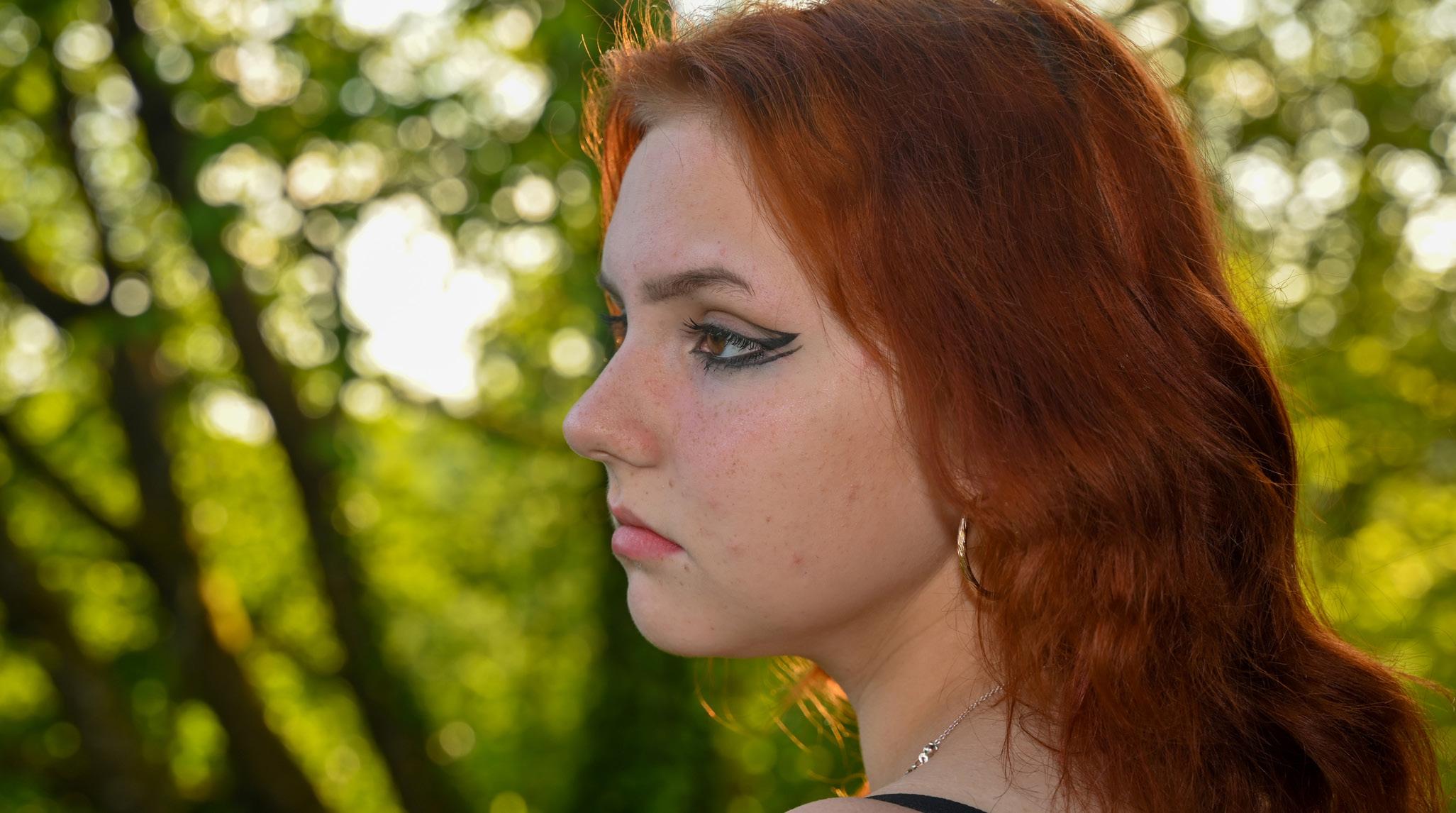
And now it just feels like, okay, there might be a problem today, but I know how to handle it.
I know how to walk through it, and it’s not this kind of constantly feeling unbalanced and scared and fearful, and so that I would say that’s the biggest difference for me now, having kind of gone through this work and developed these things. And certainly I, you know, I love watching that journey, you know, with my clients, seeing them take those same steps, and watching them get the same result.
Ron
You had to get over being afraid, getting over those fears of not only about yourself, but about being abandoned, about different kinds of issues. I know. I talked with men sexually abused and they had a lot of performance issues around, all of that, if they didn’t get dealt with, it was going to affect every relationship on down the road. So, what do you think is the main message you would want to tell someone who hasn’t outwardly acknowledged that they’ve been sexually abused. What would you tell it as someone who works with people like that?
Rachel
Well, if there’s somebody who has been sexually abused, and you kind of have it that the pink elephant in the corner, and you’re just saying, “Okay, you sit over there My life is over here, and I’m just going to go on and not talk to you, not deal with you, not think about you. “
I would ask you to just pause and consider that we can’t live life as if we aren’t impacted by the things that occur to us. And by constantly pushing it into the corner. It’s just like it’s growing bigger and bigger and bigger.
And the more we say, okay, if I do that, it’ll be no big deal, the more it actually becomes a big deal. It’s when we pull it out and we hold it in our hands, and it might sting a little bit, but we look at it, we turn it over, we investigate, that’s when it starts losing its’ power. That’s when you can actually, genuinely get to the place where you can say, I was sexually abused. That’s a part of my experience, and that’s it. There’s none of the like hangover, of the hurt and the pain and the problem associated with it, but as long as you’re pushing it away, you just can’t get there. So, you know, if it’s just even, a small little step you can take towards acknowledging that that’s a part of your story is going to be a huge first step.
Ron
And what do you think that first step for many people should be?
Rachel
I often think that journaling about it is a great way to start. It’s very difficult to say with something at some level then we can get in touch with it at deeper and deeper levels. And the nice thing about journaling or art or music or some other creative outlet like it is, it can be private, but still have great meaning. So the first step is becoming more self-aware yourself.
Ron
And what sorts of things should people look for as they begin to walk down that path? Are there any red flags that come up for example?
Rachel
Well, so you know, once you acknowledge that, you’re kind of opening the can of worms, so be sure to have support around you . Doesn’t have to be that you go and tell the person, a friend or a family member or even a therapist that this is a particular issue, that you’re kind of looking at in your private world, but you do want to have people out loud, I was sexually abused. I was raped if you’ve never, ever said it before, if you’ve never acknowledged it to anyone. So, the place is acknowledging it to yourself. And a lot of people can use music, they use poetry, they use journaling. You can use art, whatever it is that just helps you be able to say it and acknowledge it to yourself first.
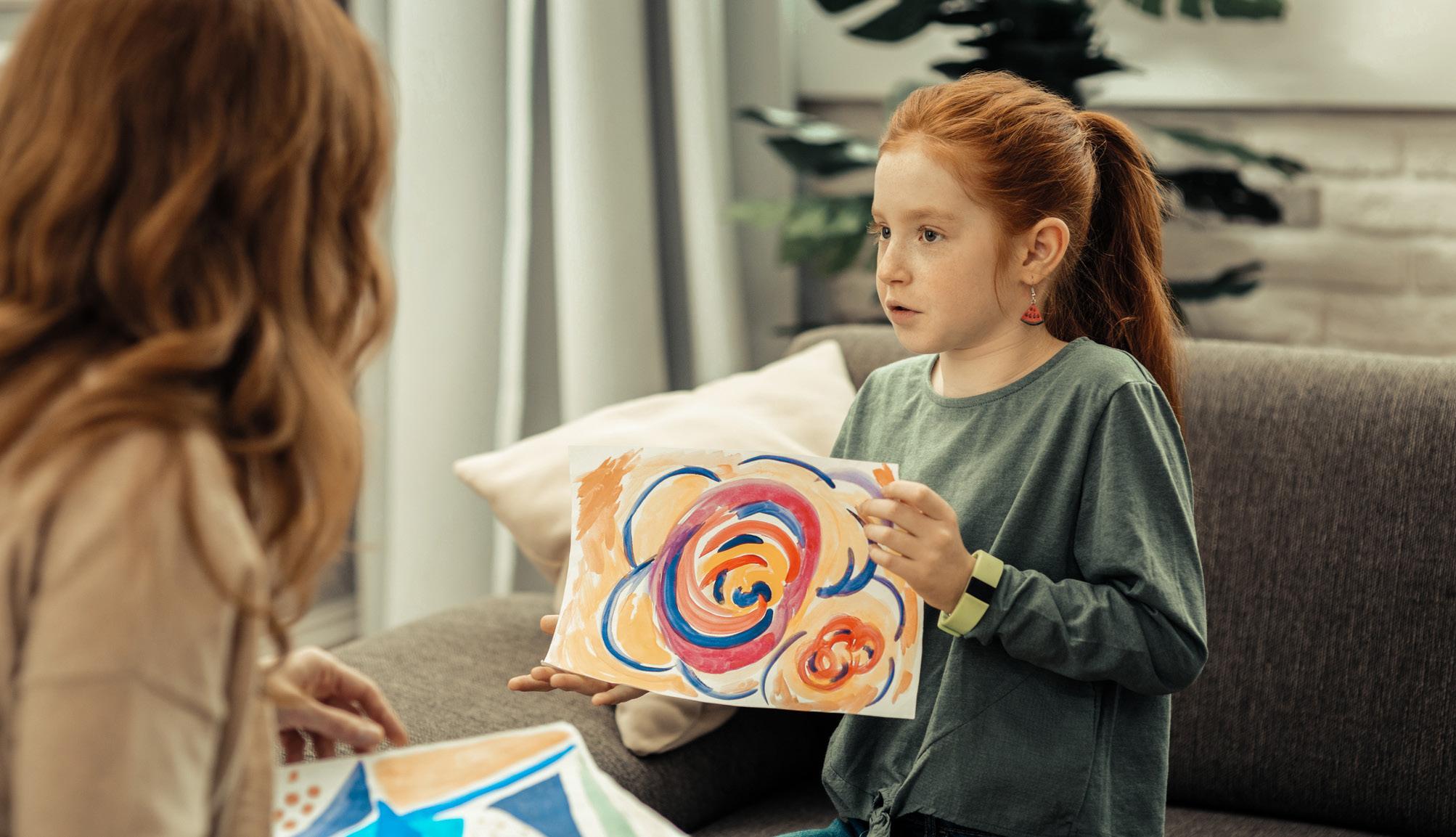
Ron
It makes a lot of sense. We can get in touch around you who you can just lean on and go to for care and support. So, you know, watch out for that, I would say, and at some point, you are going to want to talk to somebody.
I really genuinely believe that this is an issue that is healed best through conversation, through action, through some sort of active, actively taking it on. You know, it’s not kind of a passive issue, and really wanting to look for people who specialize in working with this issue, you know. Many therapists are trained in certain areas but aren’t really trained in how to work with sexual abuse. It’s its own little beast, right? And it brings its own nuances and things to understand. So, once you’ve reached that place where you are ready to get support, you know, I just really encourage you. When you’re talking to a therapist or you’re talking to a coach or you’re going to a program, you know, really ask them about their experience working with people around this particular issue.
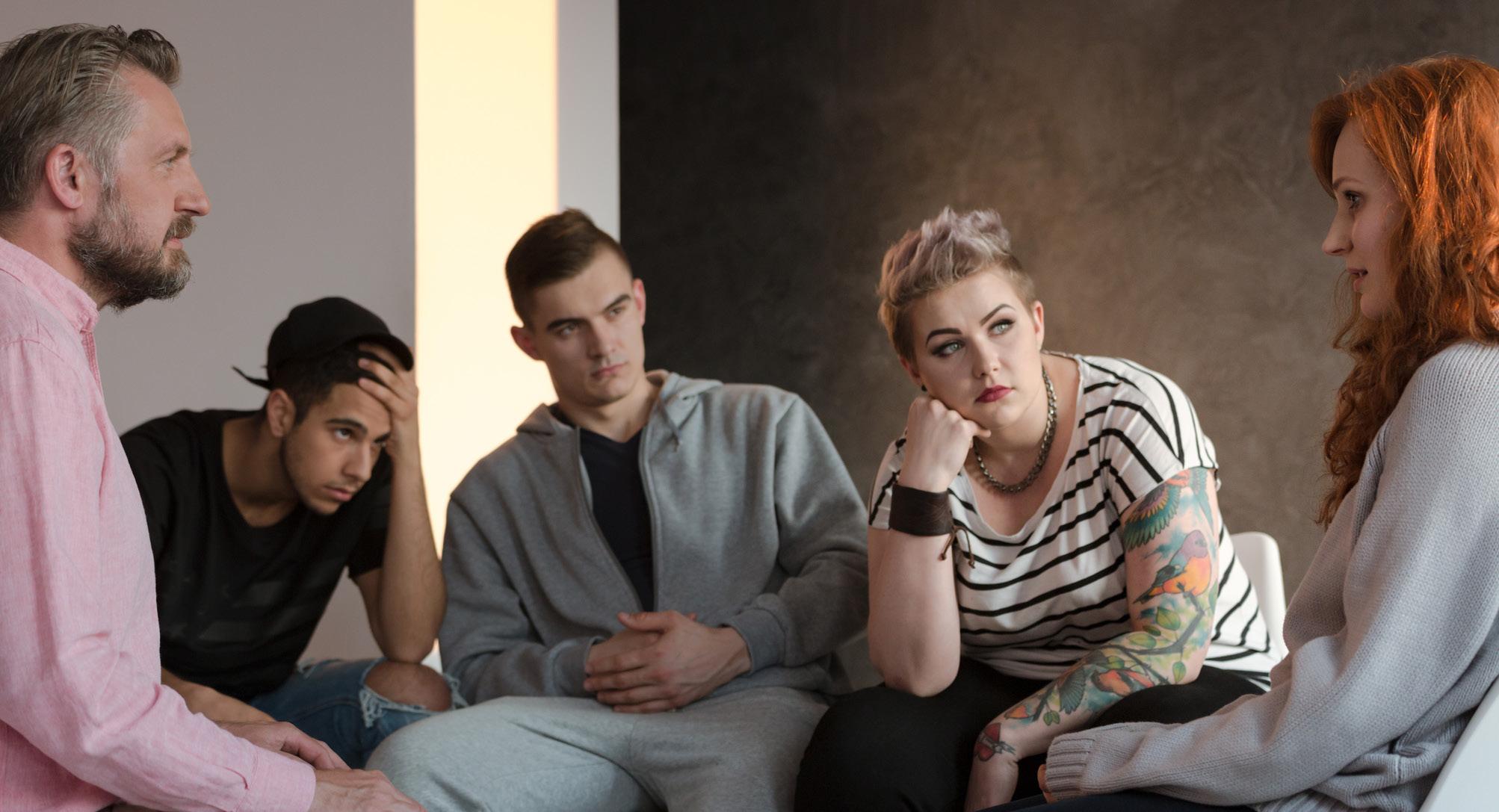
Ron
Yeah, it’s important to enlist, I believe the right support for several reasons.
First of all, these are difficult issues to talk about, and when they come up, you have to be sure that the person that you’re talking to, both has a way to understand what you’ve been through and a methodology that recognizes and proceeds from a place of understanding how the mind deals with trauma.
Do you want to talk at all about the semantic issues around all of that, like how we store memories and stuff in our bodies, memories around that sort of thing.
Rachel
Yeah, I can a little bit. It’s not an area that I delve too deeply in. Usually, if I have clients who are having strong somatic experiences, I send them to a practitioner or somebody who does body work, but it’s very true that the that the body can hold and store the trauma, and so parts of your body can either be hypersensitive or desensitized to touch . And a lot of the work that I do around sexuality and intimacy takes the path of separating the touching, the sexuality, the experiences that occurred when you were abused from what you’re experiencing now as an adult. And you know, for me, the biggest shift around this very this particular issue really came when I hit upon and came to understand that the difference between the sexuality that occurred when I was being abused, and the sexuality that is occurring as an adult woman is choice, that the other when I was being abused was sex out of obligation, and as an adult is sex out of choice. And for me, that was enough. Like that did it for me. That just turned the whole script over, and I was able to experience sex and intimacy in a completely different way when I just made that distinction and that separation. You know, some of my clients, we’ve had to do a little bit deeper work and really get into like, okay, sit with your partner. Look at your partner. Think about, hey, I’m with my partner here. This is who I’m with. Now let them touch your leg, touch your thigh, really reconnecting and staying present, right with what you’re actually experiencing.
Ron all of that.’ No. I mean, we really have to think about the fact that there are so many people in our community that are affected by this, and it has long term consequences, on education, on health, on being able to support themselves, being able to work.
So, you’re bringing up an important thing, and that is that your partner needs to be aware of what you’ve been struggling with, what you are struggling with, and enlist their support so that they can take a supportive, understanding, compassionate and sensitive role in helping you both have intimacy.
Ron
Yeah, I’m glad you’re bringing up all the
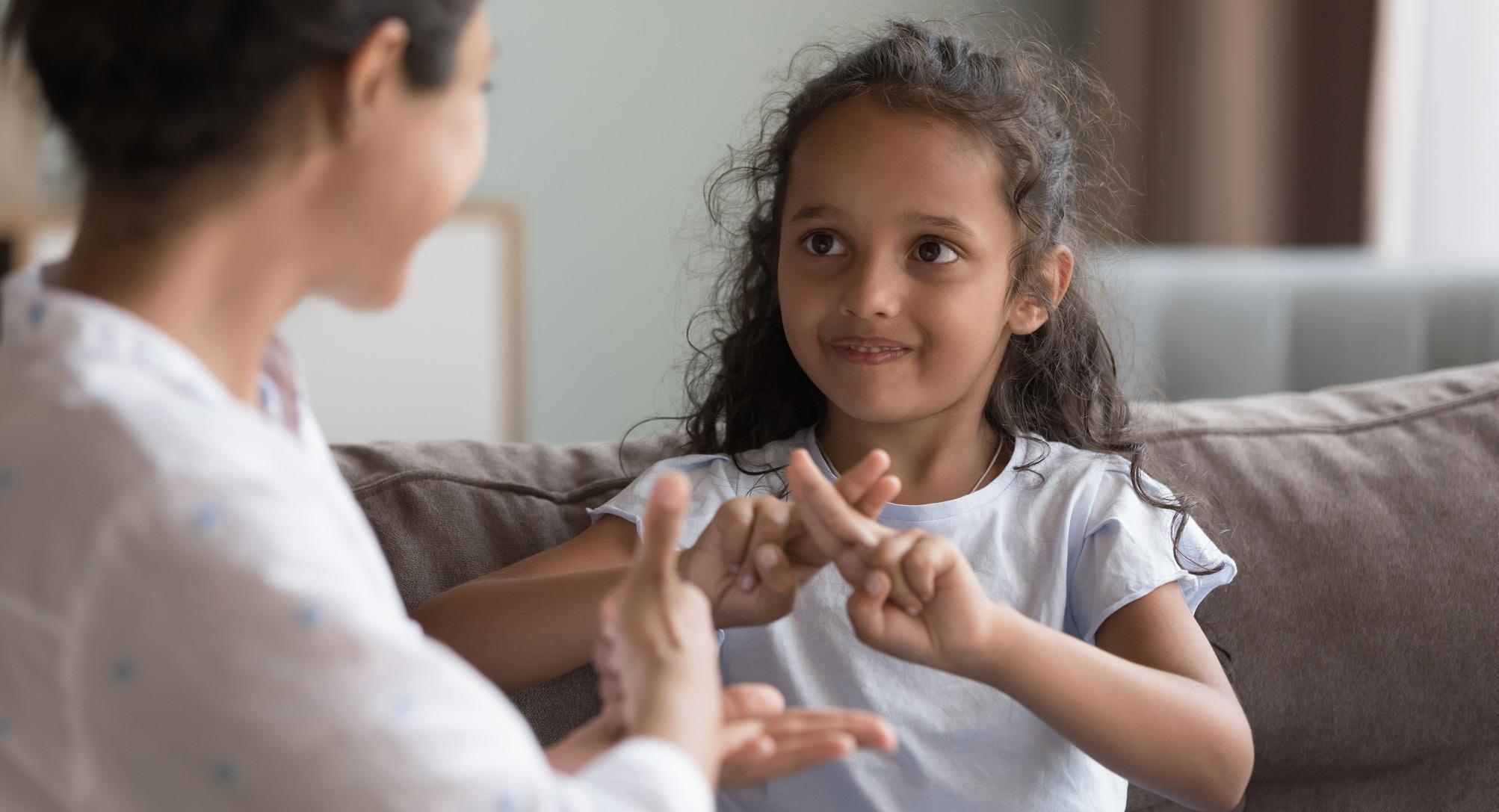
Rachel
Yeah, I mean, you know, sexual abuse.
We often think of it as an individual’s experience, but it is a family’s problem. It is a partner’s problem. It is a community, a society's problem, because it’s everywhere you look.
You go into your work if one in three women, and as you so rightly pointed out, those are only reported cases, but if you go into your job and one in three women have been abused. You know, they don’t leave the sexual abuse at home and go to work. You know, they take it with them. And so you’re being impacted by the fact that this is going on in our society. If you’re in a partnership with a man or a woman who’s been sexually abused, they don’t get to just set that aside. And, okay, honey, let’s go out to the movies tonight. Like, oh, it’s with them. And so, you know, this problem, this is an epidemic, in my opinion, is not just ‘oh, that’s an individual’s problem’, and they have to deal with it; they have to get over it. And societal implications. And since you brought up the family as well, I’d like to ask you a couple questions about that, if I can. What can parents do to be more aware of what’s going on with their kids? What are some ideas around that?
Rachel
Well, I think the biggest thing is to be talking to your children from a very young age. You know, I was a nanny for 8 years, and with the children when they were about three, we started talking about, If somebody touches you or does something to you that you don’t like or it doesn’t feel comfortable, even if they tell you not to tell, you know, even if I do something…
Ron
You bring up a real important point, and that is to be aware that this problem is very pervasive. There are a lot of unscrupulous, I hate to use these words, but, a lot of unscrupulous, predatory type people, those whose sexual desires feel more important than your child’s well-being. And so, to have this something that kids can be comfortable to talk about is a real important thing. It’s like bullying at school. Every parent wants to know if their kid is being pushed around. And so, if you’re raising a family, we’re being pushed around. It’s just not acceptable. You’re not going to tell that to your parents.
Rachel Right.
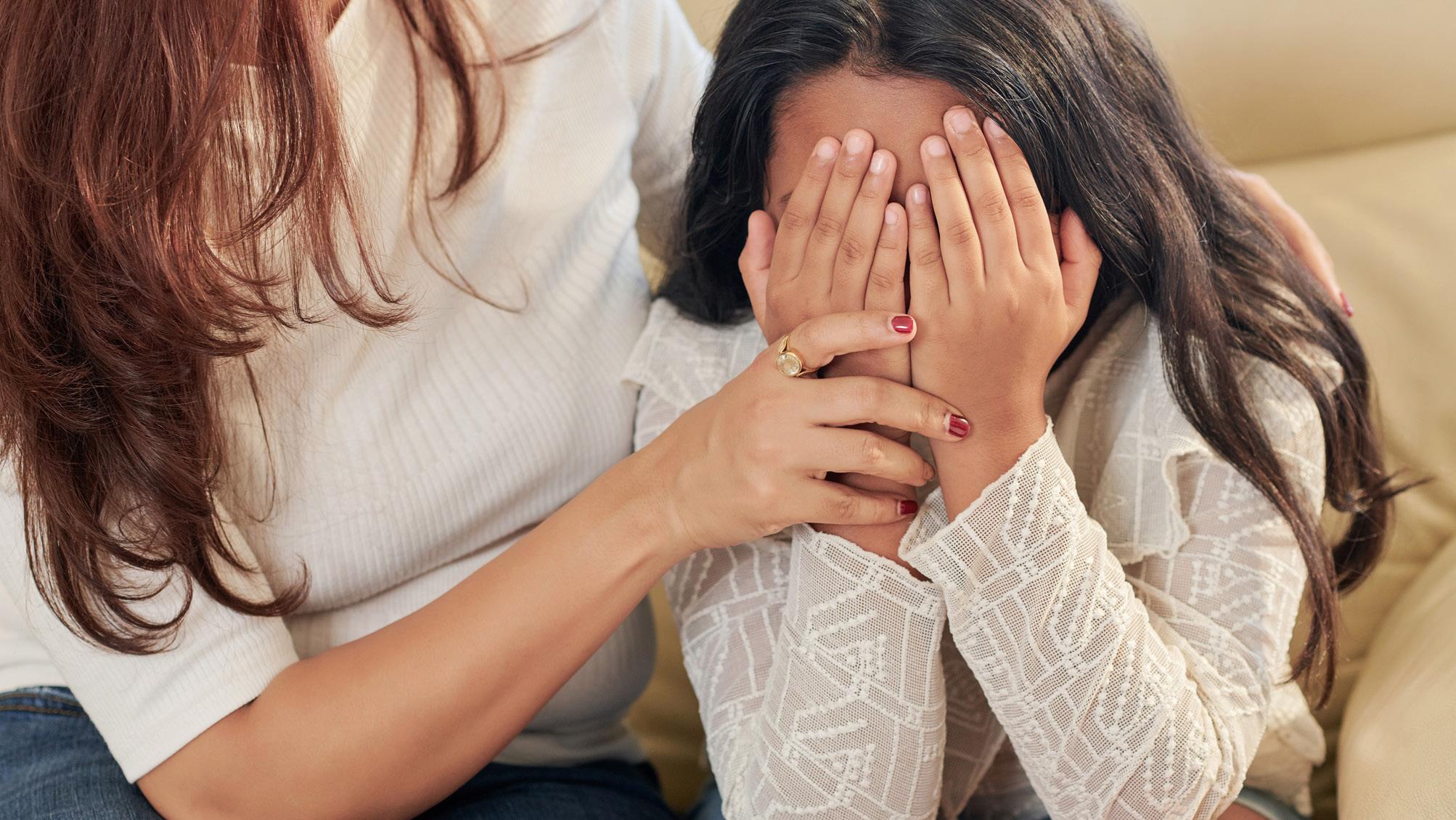
Ron
Yeah, you’re raising a really important point. And so, parents should facilitate an openness of communication with your kids. What else.
Rachel
Well, I mean, certainly, you want to be aware of, you know, who your children are spending time with. The unfortunate statistics are that most abuse occurs within the family. So, you know, it’s a hard thing to consider and a hard thing to look at, but you have to really trust your intuition. You have to trust and pay attention to it. It’s very hard when you think something weird about what’s going on between, you know, this uncle and my child or whatever, to not want to push that away and say, you know, it’s just Uncle Joe or whatever. You have to follow through on those things, and you have to give your children a stage to voice what is happening to them and really teach them. “I don’t care if you tell me and I don’t believe you. Go tell someone else. Keep telling someone until someone believes you.“ Because abuse is in the family so much. That’s the hardest part, right? And that’s why I said earlier on.
You know what I teach children is, “Even if I do something ” when I’m talking to them , “even if I do something, you go and tell someone,” because I want them to feel completely and totally empowered to speak up.
Ron
It starts when you’re young.
Rachel
Mmhmm.
Ron
And it can foster the viewer to squash the way to proceed to some concluding thoughts. Stay on the line. Okay?
Rachel
Thank you, Rob,
Ron
Wonderful having you on the show.
Ron Conclusion
Ah, deep breath, folks. If you have been sexually abused, know that it is not your fault and that you are not alone. You don’t have to continue to live with your condition. I encourage you to dig deep and find the courage to reach out for the support that you need and deserve.
Everyone can become more aware of what’s going on around them and take appropriate steps to prevent sexual abuse within their family, community, friends and community at large. I also encourage you, if you’re in an intimate relationship and uncomfortable with some aspects of the sexual part of that, to communicate that to your partner and provide a way for them to be open for that conversation.
So, at the beginning of the show, I asked people to set a couple intentions. One was, if you have suffered from sexual abuse, come clean with yourself and get the help you need.
The second is to stand together with Rachel and I and other people who support the eradication of sexual abuse, step up your game. Pay attention to what goes on around you.
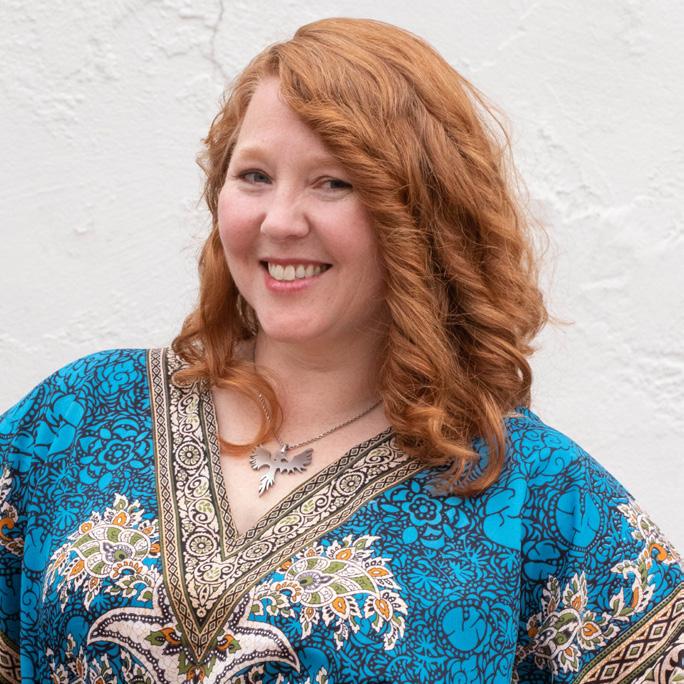
About The Author
Rachel is the owner and founder of Rachel Grant Coaching and is a Sexual Abuse Recovery Coach. Rachel holds a Master of Arts in Counseling Psychology and is the author of Beyond Surviving: The Final Stage in Recovery from Sexual Abuse and Overcome the Fear of Abandonment. You can download both free on her website
She works with survivors of childhood sexual abuse to help them let go of the pain of abuse and finally feel normal.
Her program, Beyond Surviving , is specifically designed to change the way we think about and heal from abuse. She has successfully used this program to help her clients break free from the past and move on with their lives.
Reach Rachel here or on Facebook.










